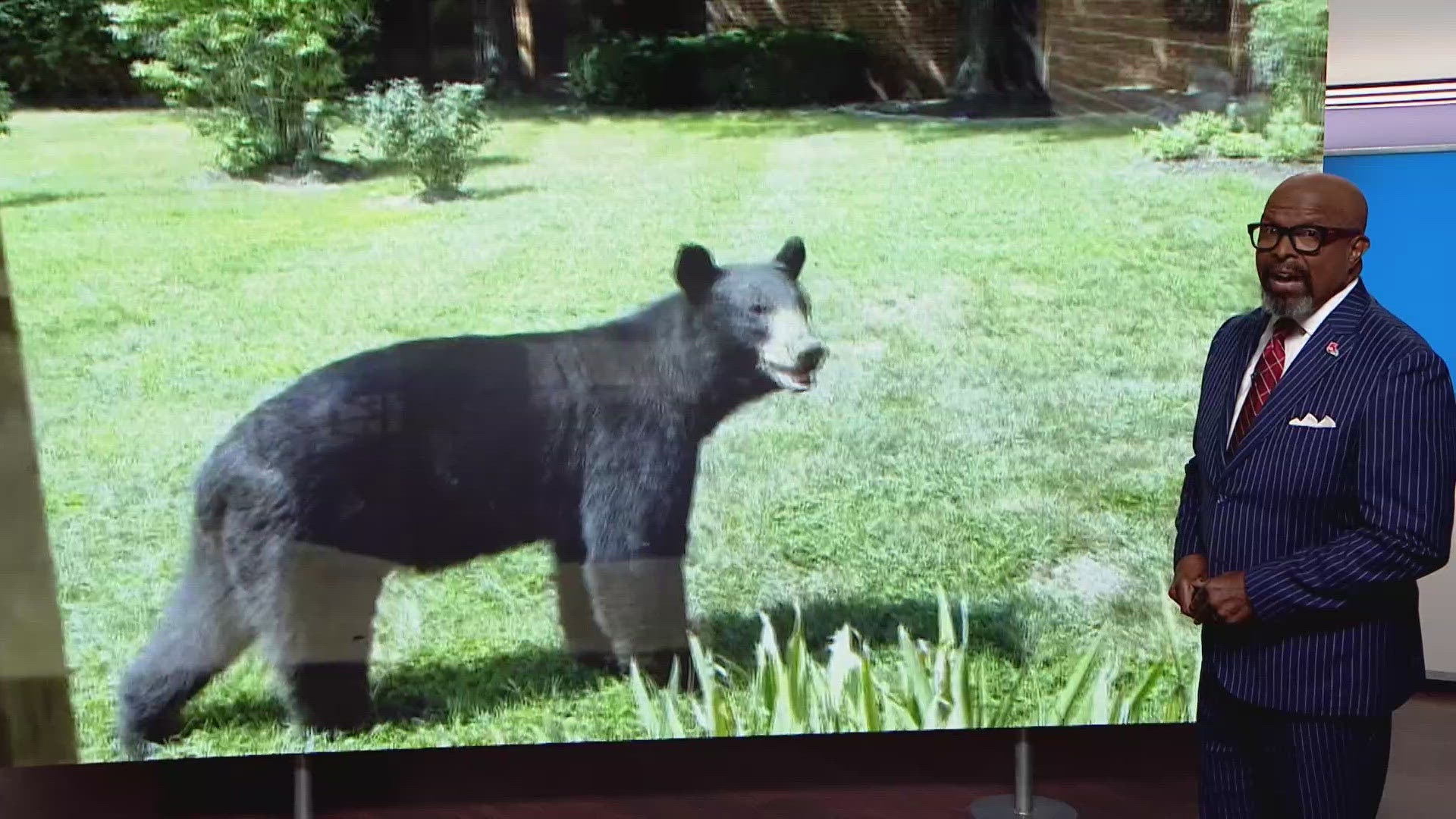AFFTON, Mo. — Any trash cans, pet food, bird feeders or grills and smokers stored outside in Affton should be brought inside after multiple black bear sightings were reported in the area, according to the Missouri Department of Conservation.
MDC's Metro Media Specialist at the St. Louis Region Office Dan Zarlenga told 5 On Your Side that he received reported sightings from Facebook sources at around 12:40 p.m. on Wednesday. MDC Statewide Furbearer Biologist Nate Bowersock reportedly got two other reports of similar bear sightings earlier Tuesday morning. The department has yet to get any pictures of the reported bears.
"As always, the most important message here I think is that if there are bears in the area, folks should observe good bear awareness protocols," Zarlenga said. "This includes not feeding, approaching, or threatening them."
MDC lists numerous ways people can prevent attracting bears to their property on its website, including:
- Never feed a bear, on purpose or accidentally.
- Odors attract bears. Keep a clean campsite and store all food and toiletries in a secure vehicle.
- Empty trash cans as often as possible and wash with a scented disinfectant to reduce the food odors. Use large trash bins that have metal, lockable lids outdoors and keep them locked at night.
- Don’t leave pet food sitting outside. Feed pets a portion they’ll eat at each meal and remove the empty containers.
- Keep grills and smokers clean and store them inside.
- Don’t use birdfeeders from April through November in bear country. If you must, hang them at least 10 feet high and 4 feet away from any structure.
- Use electric fencing to keep bears away from beehives, chicken coops, vegetable gardens, orchards, and other potential food sources.
Relaxed attitudes toward bears could set reckless precedents and teach the animals possibly fatal habits. When a bear learns it can easily get food in human communities, it may become aggressive and dangerous. When that happens, conservation agents rarely have another option other than killing it.
Trapping and relocation was previously a widely-used practice to deal with bears who caused damage in human communities, but the practice ended in the early 2000s after research found the moved bears continue to cause problems after they're moved. Once bears see human communities as an easy food source, it's hard for them to quit.
"We have unfortunately had to remove [or euthanize] a few bears because they got too used to people foods," Bowersock said. "Got into too much garbage, got into bird feeders, or there's unfortunately some people that are intentionally feeding wildlife even though you're not supposed to ... The term 'A fed bear is a dead bear,' is a very real thing."
Any bear sightings should be reported to MDC through their website. Click here to make a report.

